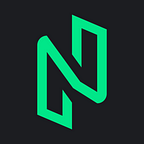The First Microservices-Driven Blockchain Serves Up Enterprise-Grade Solutions Amid Warming Cryptocurrency Market
NULS deploys a new tool for an old problem in blockchain development.
This may be the first you’ve heard of the small, Singapore-based project that launched its 1.0 mainnet in July of 2018. In 2017, while the cryptocurrency market was a minefield of hyperbole projects, NULS developers began work on their second blockchain project. Many of the bloated ICO startups and marketing gimmicks parading themselves as blockchains would never make it to the warm promise of Spring 2019. The bear devoured projects in 2018 as regulation further culled the herd of scams, and failed start-ups.
Throughout the crypto-winter NULS silently developed their blockchain and after the successful mainnet launch, immediately began to redesign the architecture to an improved version, NULS 2.0, scheduled for beta release this summer. The dedicated technical team of developers well-known in China and rumored to have connections to the Elephant Alliance, focused on creating a truly modular architecture featuring hot pluggability and a module repository; a marketplace for enterprises to shop for modules that integrate existing software systems with the blockchain.
Over the past week, investors have been popping up like groundhogs seeking final confirmation that the bull is stirring, and the crypto spring has arrived. The alpha testing for NULS 2.0 began in March and while the global team began hosting developer workshops in Silicon Valley, the release of 2.0 alpha heralded the beginning of a rally that would bring NULS into the top 100 projects ranked by market cap, doubling its price in just one week in April. NULS has planted itself firmly in the space with a blooming microservices-based ecosystem that will propel the industry forward.
Problems facing blockchain developers are often multifold, and the biggest problem that contributes to slow adoption is the bottleneck of developmental time and cost. Coding layers are coupled and co-dependent and service-based tasks are so tightly bound together that they cannot be modified or upgraded without requiring developers to change other layers. Due to a shortage of blockchain developers, coding language limitations, and the difficulties of tight coupling, doing business on blockchain can cost millions and take years.
Think of this tight-coupling problem like the service you get when you go out to eat. Let’s say your waiter had to change his nametag each time he brought a new dish or beverage to your table. And every time he changed his nametag, the rest of the staff would be “bound” to this action and need to stop and change theirs too. To further illustrate; every time a new order came into the kitchen, every restaurant employee would have to stop what they were doing and check Blockfolio. This inconvenience would add severe consequences in time and cost for “developing” your meal.
For businesses, when developers are restricted to working with heavy protocols that require changes to other layers or other modules providing service-based functionalities, it is difficult to create and deploy new modules for upgraded or customized features. The current state of blockchain services only allows a “heavy” kitchen protocol that delivers a slow, expensive, cold dApp to businesses after extensive development time. For this reason, microservices provides a delightful alternative, catering to developers by allowing them to focus solely on the services that their business will enjoy, without effecting any of the other coding layers. Microservices architecture allows NULS to deliver fast, hot dApps to businesses, at a fraction of the cost and time compared to other blockchains.
This adaptive flexibility and light protocol is what NULS 2.0 brings to the industry. Adaptation is nothing new to the NULS team. In late 2017, Lin Yang, lead developer and angel investor of NULS, created InChain, a blockchain designed to prevent counterfeiting and provide supply-side solutions for Chinese businesses. When the Chinese government locked down ICOs in a ban, Yang and his technical team pivoted, expanding on their initial concept and creating NULS, a complete blockchain platform for smart contracts, dApps, cross-chain, and a multiple-chain ecosystem to include InChain, whose investors chose between a refund or the airdropped NULS token. Yang became the angel investor of NULS, and the technical team rooted itself in the task of tackling enterprise adoption.
Focused on solving the problems of development time and cost, with the aim to make blockchain easy and simple, the team began designing Chain Factory: a featured product of NULS that will allow one-click chain creation for businesses. Chain Factory provides the ease of plug-and-play modules selected from an endless repository. Finally, a place where developers can go to shop for modules, modify existing modules, or build new ones in the language of their choice, tooling them to provide every enterprise with quick solutions enhanced with the added feature of evolving customization.
Many major software-based companies have developed their own microservices frameworks, such as Amazon, Uber, Netflix, eBay, and Comcast Cable to help businesses deploy the applications needed for their specific use-cases. The value of microservices combined with the security, speed and scalability of 3rd generation blockchain technology has not gone unnoticed. In March, the small market-cap project began to shine, receiving an influx of funding from existing partner Ulysses Capital, and adding a new partner BlockVC. Solving the bottleneck of development is an old problem. NULS adds a fresh, microservices-based solution giving enterprises a cost-effective way to build a brighter future with blockchain.
Join our social media and explore NULS!
Official Website Follow now
LinkedIn Follow now
Twitter Follow now
Reddit Subscribe now
TelegramJoin now
YouTube Subscribe now
SteemitSubscribe now
Instagram Follow now
DiscordJoin now
